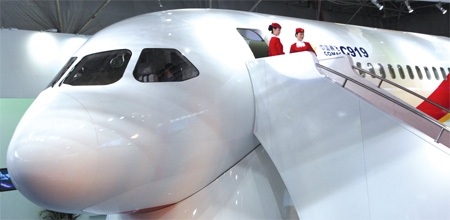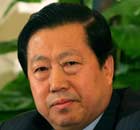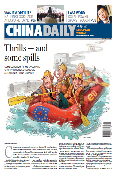Political capital to the cost of the people
Updated: 2010-09-07 07:58
By Chen Weihua (China Daily)
It was interesting to hear some politicians in the United States say they will not waste any more political capital fighting people like Senator Chuck Schumer, who is leading a lobby to pressure China to revalue its currency or face higher tariffs on its exports.
Political capital is clearly an increasingly important, yet scarce, commodity for the Obama administration and his fellow Democrats ahead of the mid-term election in November.
But while political capital is essential in an election for both the Democrats and the Republicans, the real issue is whether it is the right thing to do and not how much political capital it costs for an individual party.
This is the issue that should be addressed by Larry Summers, the top White House economic advisor, who is visiting China to seek concession from the Chinese on the revaluation of the yuan and a host of other concerns.
Although the yuan debate has gone on for years, if you read the New York Times or Wall Street Journal these days, you find there is declining support in the US for the obsession with revaluing the yuan.
In an Aug 20 article in the Wall Street Journal, Robert Pozen, chairman emeritus of MFS Investment Management and a senior lecturer at Harvard Business School, argued that the value of the yuan is not the main driver of the US trade deficit, and that the appreciation of the yuan relative to the US dollar may result in China losing low-end exports to countries like Bangladesh and Vietnam.
Pozen urged American politicians not to push so hard for yuan appreciation, instead he suggested the US should support higher wages and a stronger safety net for Chinese workers, which would increase the price of Chinese exports and thus reduce the incentive for consumers in the US to buy goods from China.
In a New York Times article four days later, Joseph Massey and Lee Sands, partners in an investment advisory and consulting firm, and respectively chief trade negotiators with China at the Office of the US Trade Representative in the 1990s, argued that floating yuan exchange rates won't fix the US trade deficit with China.
Citing a similar US experience with Japan in the 1980s, the two experts concluded that fighting China over the yuan is a losing battle for the US. They argued that a better solution would be to bring the vast pools of Chinese capital created by the American purchases of Chinese goods back to the US.
Paper's Digest

Chinese jet takes on Big 2
First large commercial plane set to ride on demand for aircraft as economy grows.
Super-CPU only for domestic eyes
Specials

Chinese jet takes on Big 2
First large commercial plane set to ride on demand for aircraft as economy grows.

Gaining ground
Doing business in china for westerners has come a long way, Peter batey says.

Safeguarding environment a priority
China continues to face mounting pressure to curb environmental degradation, despite progress in reducing pollution over the last five years, the environmental protection minister warned.
